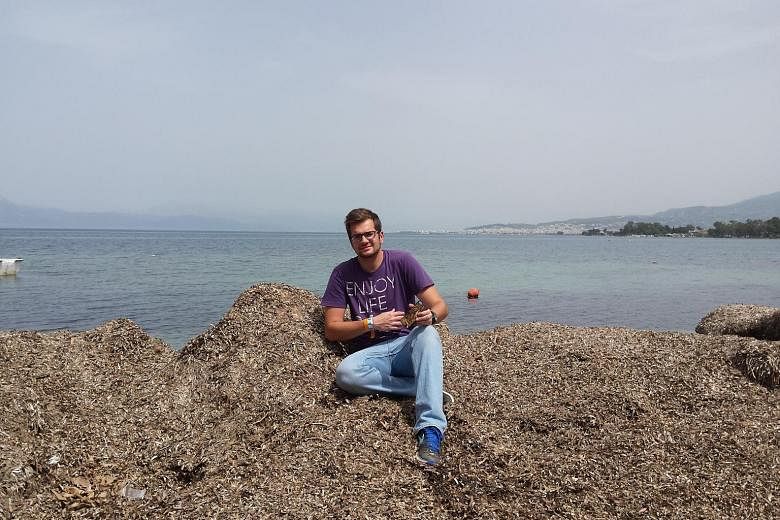ATHENS • Most people don't think of seaweed as a valuable resource. However, a newly found Greek company, Phee, has identified in seaweed a first-class and innovative business opportunity.
About three years ago, at a conference on entrepreneurship, Mr Stavros Tsompanidis heard that seaweed was an asset for Greece.
He wanted to test himself in the business world and working with seaweed was the idea that he was looking for.
What did he do? "Revive" dead seaweed.
For several months he carried out research to see how he could use the dead leaves of the Posidonia oceanica seaweed that washed up on the nation's shore.
This seaweed is a marine plant that lives at a depth of one to 35 metres (depending on the water clarity) in dense fields or along channels in the Mediterranean sand.
Mr Tsompanidis found he could process dead seaweed and transform it into natural surfaces, from which recyclable products and accessories could be derived. This is how Phee was born.
By talking to coastal municipalities, the members of his team discovered that an average of 200 to 250 tonnes of seaweed are washed up every year on the beaches of each region in Greece.
"We realised that the raw material is there, and actually in huge quantities. At the same time, municipalities are spending a lot of money cleaning up seaweed from the beaches and bury about 60-70 per cent of it in sanitary landfills, which has economic and environmental implications," explains Dr Nikolaus Athanasopoulos, who co-founded the company.
For the last 18 months, Phee has been operating in the region of Achaia, where it has set up a small production unit near the sea.
"Coastal municipalities will supply us with the dead seaweed. We are already working with municipal authorities of Achaia so that they can provide us with the raw material, as our company does not undertake the cleaning of the beaches. We then process the raw material using a method we have developed over the last two years," says Mr Tsompanidis.
"In the next stage and through a process which is completely environmentally friendly, we produce natural surfaces (panels) - the Phee board," he adds.
According to laboratory research, the company's panel can be considered as a substitute for specific timber products. Other commercial applications?
Last month saw the launch of Phee-case, the first case for smartphones made of seaweed.
Sandals made of seaweed could be next.

